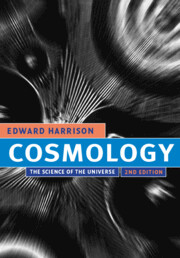Book contents
- Frontmatter
- Contents
- Preface
- Introduction
- PART I
- 1 What is cosmology?
- 2 Early scientific cosmology
- 3 Cartesian and Newtonian world systems
- 4 Cosmology after Newton and before Einstein
- 5 Stars
- 6 Galaxies
- 7 Location and the cosmic center
- 8 Containment and the cosmic edge
- 9 Space and time
- PART II
- PART III
- Appendix – Fundamental quantities
- Index
4 - Cosmology after Newton and before Einstein
from PART I
Published online by Cambridge University Press: 05 June 2012
- Frontmatter
- Contents
- Preface
- Introduction
- PART I
- 1 What is cosmology?
- 2 Early scientific cosmology
- 3 Cartesian and Newtonian world systems
- 4 Cosmology after Newton and before Einstein
- 5 Stars
- 6 Galaxies
- 7 Location and the cosmic center
- 8 Containment and the cosmic edge
- 9 Space and time
- PART II
- PART III
- Appendix – Fundamental quantities
- Index
Summary
With what astonishment are we transported when we behold the multitude of worlds and systems that fill the extension of the Milky Way! But how this astonishment is increased when we become aware of the fact that all these immense orders of star-worlds again form but one of a number whose termination we do not know, and which perhaps, like the former, is a system inconceivably vast – and yet again but one member in a new combination of numbers!
Immanuel Kant, Universal Natural History and Theory of the Heavens (1755)After Newton, astronomical advances in observation and theory were at first slow. Better telescopes had yet to be developed, photography and spectroscopy introduced into astronomy, and the chemical compositions and radial velocities of stars and nebulae determined. The puzzling nature of the nebulae had yet to be resolved, nebulae in the Galaxy to be distinguished from extragalactic nebulae, distance indicators to be found and calibrated, globular clusters to be identified as systems of stars lying in and on the outskirts of the Galaxy, and the confusing obscuration of starlight caused by interstellar absorption to be recognized. All this would be accomplished and accompanied by continual debate over controversial issues from the time of Newton to the time of Einstein during the eighteenth, nineteenth, and early twentieth centuries.
- Type
- Chapter
- Information
- CosmologyThe Science of the Universe, pp. 66 - 86Publisher: Cambridge University PressPrint publication year: 2000



